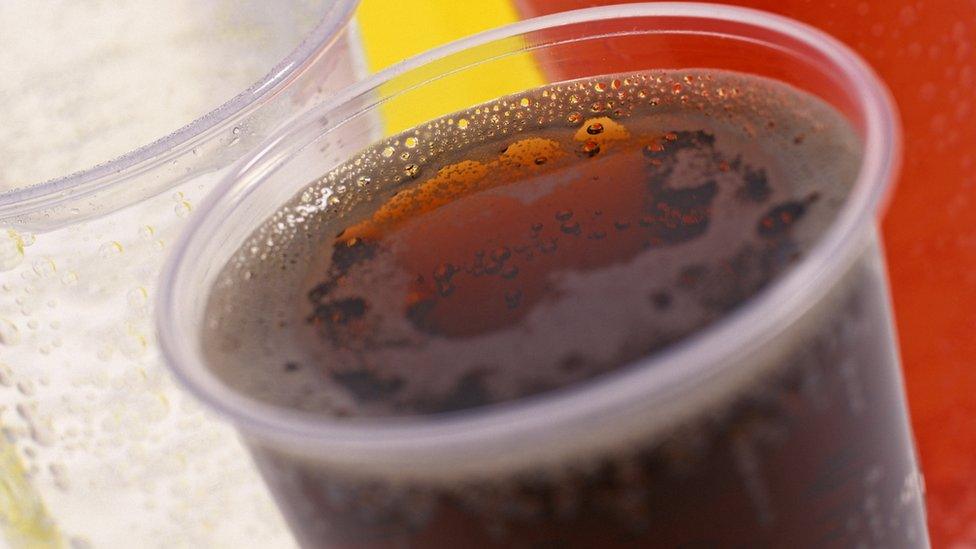Sugar tax backed by health chiefs
- Published

Public health chiefs have advised the health secretary to introduce a sugar tax as part of a range of measures to tackle child obesity.
Ahead of their child obesity strategy, ministers asked Public Health England to review the evidence on how to reduce sugar consumption.
But PHE has come under criticism for not releasing the findings of its report.
And the body has now confirmed a sugar tax is one of its recommendations.
The acknowledgement came after PHE director of diet and obesity Dr Alison Tedstone appeared before MPs on Tuesday saying the organisation "does see a role for a fiscal approach" and the higher the tax increase "the greater the effect".
Afterwards, sources at PHE confirmed the report specifically called for him to consider a sugar tax, adding this was not the most important of its recommendations.
In her evidence to the Health Select Committee Dr Tedstone said action was also needed on promotions and advertising, citing:
the Coco Pops monkey mascot
jumbo bags of crisps
"bottomless cup" all-you-can-drink fizzy drink promotions
free-chocolate promotions in newspapers
sports personalities advertising junk food
The food industry must also be pressured to cut the amount of sugar in its products in the same way it had done with salt, Dr Tedstone said.
But she added: "PHE does see there is a role for a fiscal approach in reducing sugary drink consumption.
"The higher the tax increase the greater the effect," she said, pointing out that in Mexico a fizzy drinks tax had led to a 6% fall in consumption, with the biggest impact on the poorest people.
"The point of the tax is to nudge people away from purchasing these things towards purchasing things that are more consistent with a healthy balanced diet," she said.
'No conspiracy'
However, Dr Tedstone also said that her review had concluded tax was only the fourth most effective way to fight obesity.
"We think there could be bigger impacts from getting a handle on promotions, and of getting a handle on the deep, consistent advertising our children are exposed to on unhealthy foods," she said.
About 40% of food sold in England was discounted and these deals were "heavily weighted" towards sweet and fatty products, Dr Tedstone's research found.
She said these promotions did not cut costs for consumers but simply "lead to us buying more food".
She added: "PHE are advising that promotions need to be restricted and rebalanced if we want to reduce sugar consumption."
Her appearance before MPs followed that of her boss, Duncan Selbie, on Monday, who had to defend the non-release of the report in a tense session.
He said there was "no conspiracy" and it would be released alongside the government's child obesity strategy in January.
The view within PHE is that as the review was commissioned by ministers, it is up to them to release it.
The Department of Health said it would be considering the PHE recommendations as it drew up its strategy.
- Published19 October 2015
- Published29 September 2015
- Published30 July 2015
- Published5 March 2014